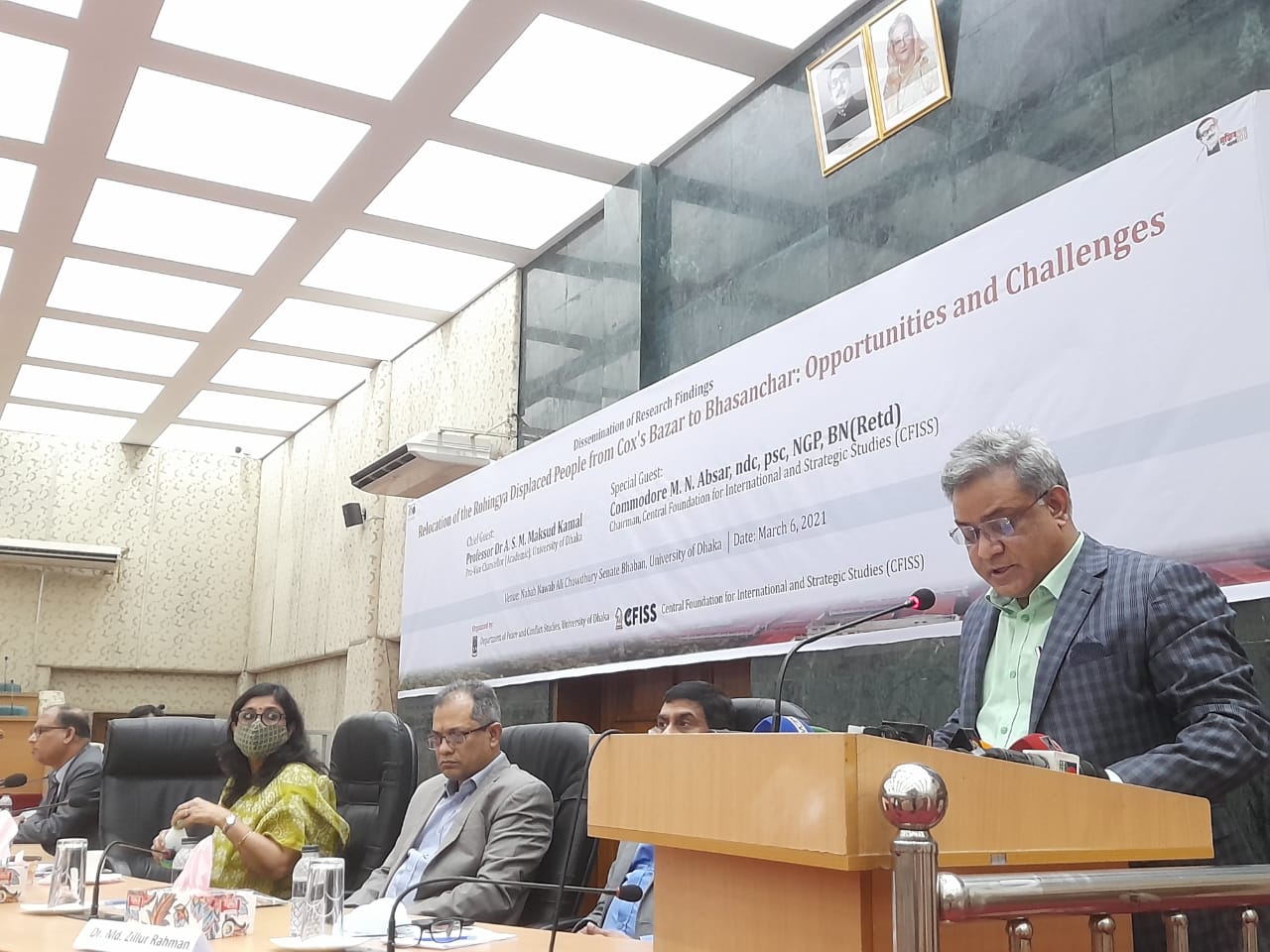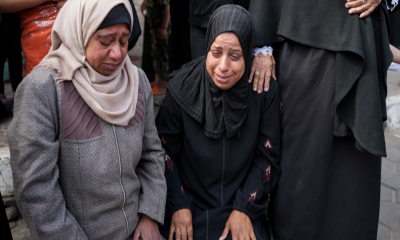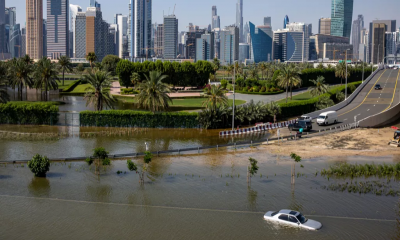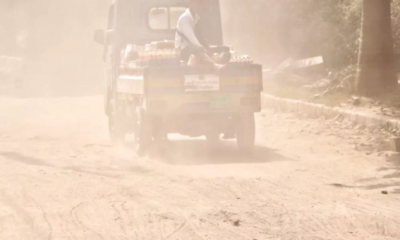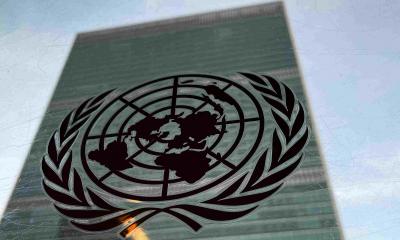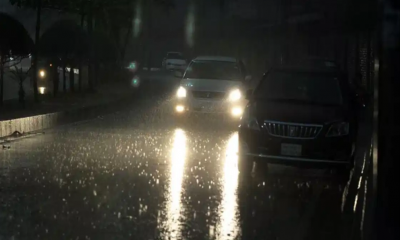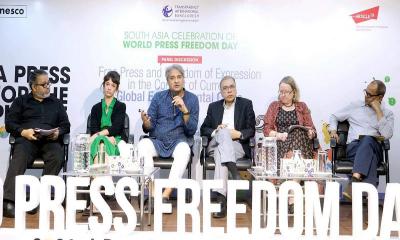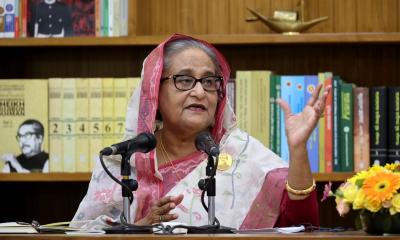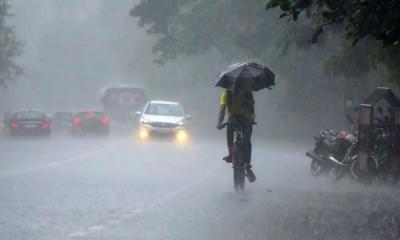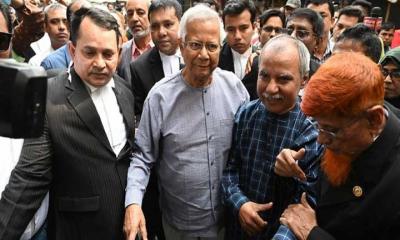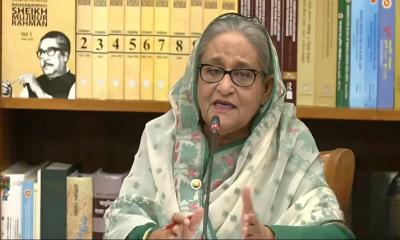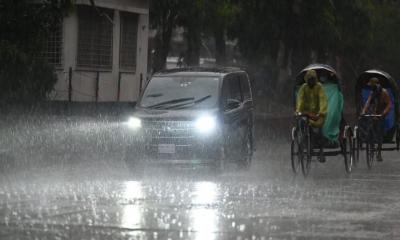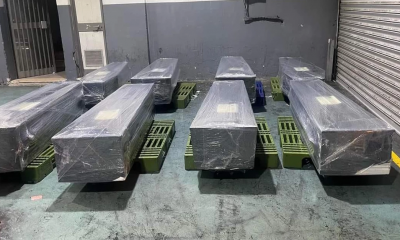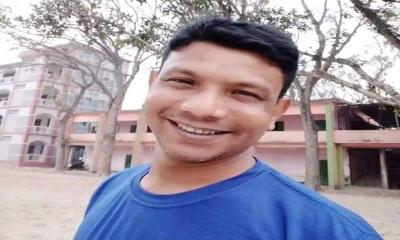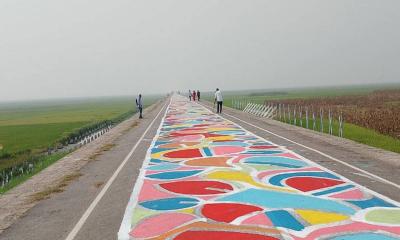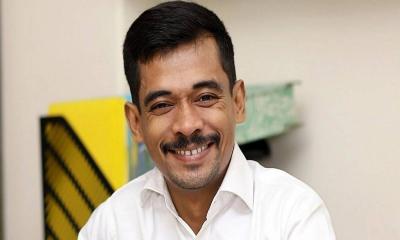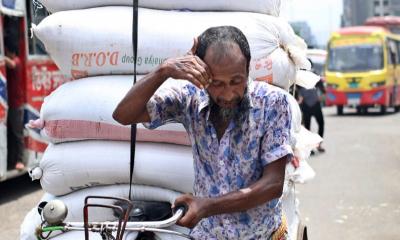Relocating Rohingya refugees to Bhashanchar from Cox’s Bazar is a step towards sustainable livelihood of thousands of Rohingyas. Relocating is a better option for Rohingyas but since the shelter is temporary the main focus should be on repatriation.
Speakers expressed these views at a seminar jointly organized by Peace and Conflict Studies Department of Dhaka University (DU) and the Central Foundation for International and Strategic Studies (CFISS). The seminar took place today at Nawab Ali Chowdhury Senate Bhaban of DU to disseminate the findings of a research titled “Relocation of the Rohingyas Displaced People from Cox’s Bazar to Bhasanchar: Opportunities and Challenges”
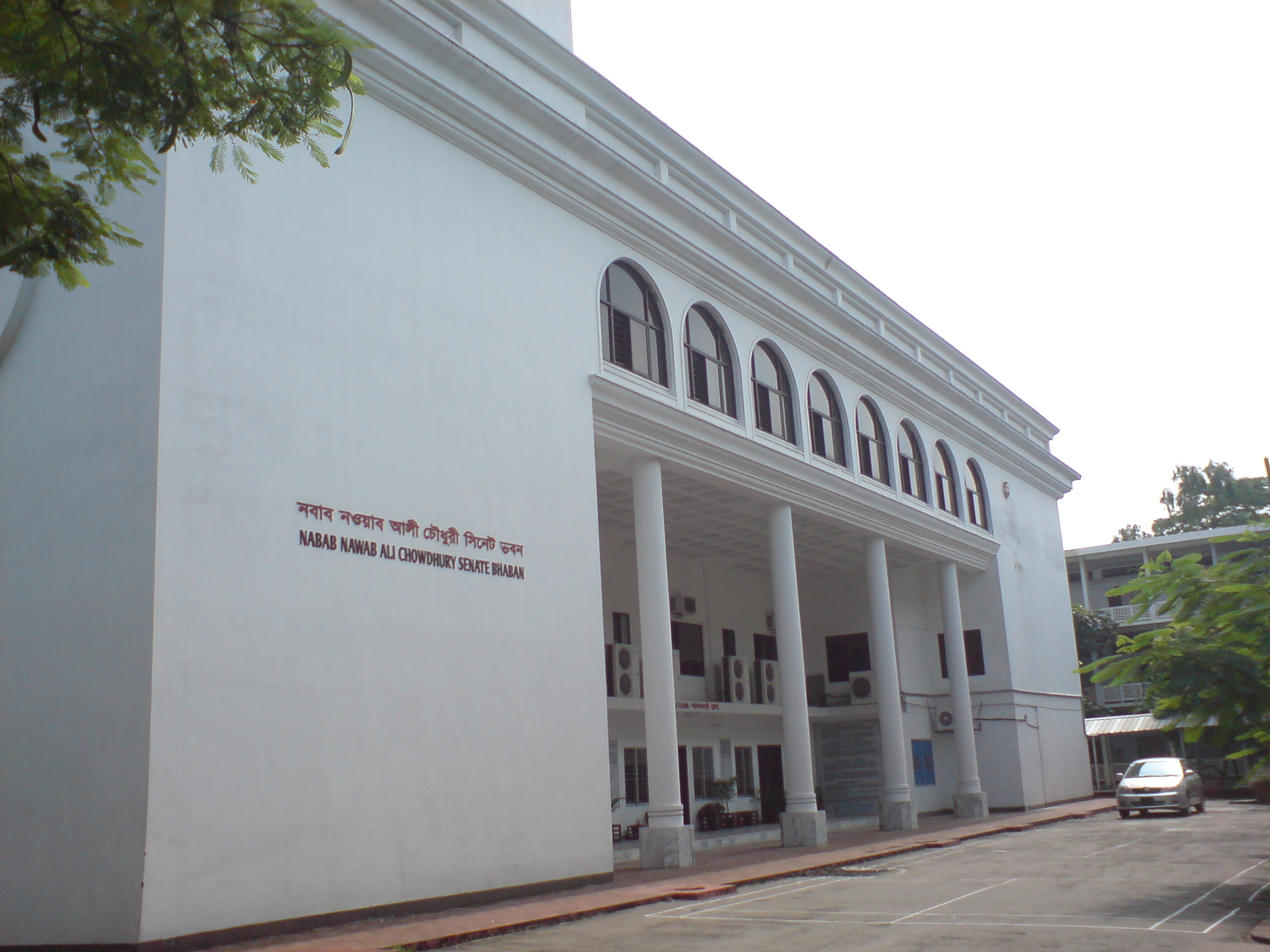
Nawab Ali Chowdhury Senate Bhaban, University of Dhaka IMAGE: Internet
Speakers also claimed that the Refugees are happy with the facilities provided there by the Bangladesh government and which is why they do not wish to go back to the cramped tarpaulin-made houses in the camps in Cox's Bazar.
They urged to the national and international stakeholders to support the relocation and put pressure on Myanmar to take back its people with safety and dignity.
In introductory remarks, Dr Rafiqul said that the research is conducted in systematic and transparent way and the Rohingyas had spontaneously participated in it.
Dr Touhidul Islam, Co-researcher of the project shared the findings of the research showing the comparison between the situation in the camps in Cox’s Bazar and Bhashan Char, which is already housing several thousands of Rohingyas.
In every aspect of life, like living condition, health, education, safety and security, sanitation and livelihood, Bhashan Char is far better than Cox’s Bazar. , said the speaker. He also mentioned the negative attitude among the host communities towards the Rohingyas and the overall national security of the country.
The findings of the research also put forward some recommendations, including more efforts on securing drinking water, use of rain water and employment generation.
Speaking as the chief guest, DU Pro-Vice-Chancellor (Academic) Dr ASM Maksud Kamal said, from view point of Disaster Management experts, the main land and build up areas of the island are considerably stable. Bhashanchar is very well planned and build with adequate space for every individual which provides better living condition for the Rohingyas.
A few studies on the erosion and accretion of the area based on satellite images also reaffirmed the same based on the data from 2016 to 2019, and there is a possibility of the emergence of new land lying in between the islands, Sandip and Hatia. Moreover people of the adjacent islands living in Sandip, Hatia and Southern part of Noakhali district could survive over the last 20 years in spite of a number of natural calamities. In these circumstances, such flat accusations on the sustainability of Bhasanchar seem to be exaggerated, he added.
Criticizing the role of India and China in this regard DU Sociology Professor Dr. Sadeka Halim said, Bangladesh is trying best to send Rohingyas back but failed after several attempts, we need international support to push them back safely to their homeland.
Ashrayan-3 project is temporary plan to relocate Rohingyas but they have to go back to their homeland. Bhasanchar is a safe island to live. Mangrove forest and embankment are surrounded by the island. International community is in fear of Natural Disasters but in recent years the char people faced only two natural disasters and they survived very well. The Government taken all out measures to tackle any disaster, Sadeka Halim added.
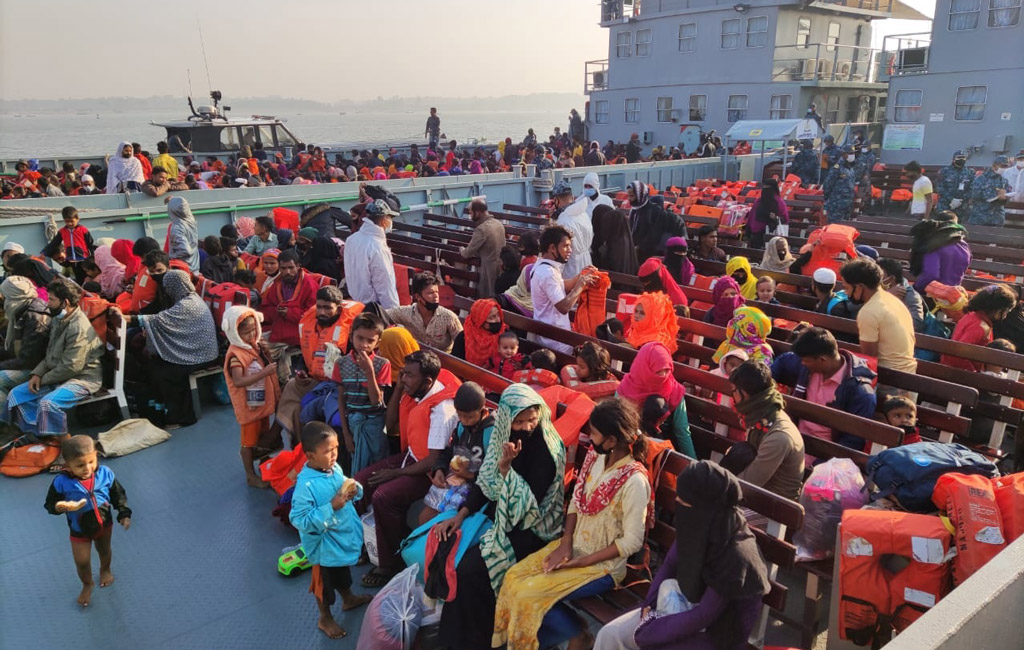
Rohingyas on a ship guarded by Bangladesh Navy to Bhashan Char. Image: Internet
DU Pro-Vice-Chancellor (Academic) Dr ASM Maksud Kamal was present as chief guest while CFISS’ chairman Commodore (retd) MN Absar attended as special guest. DU Sociology Professor Dr. Sadeka Halim also Dean of Faculty of Social Sciences of the University, Dr Md Rafiqul Islam, Lead Researcher of the project also professor of Dhaka University Peach and Conflict studies were present among others.


